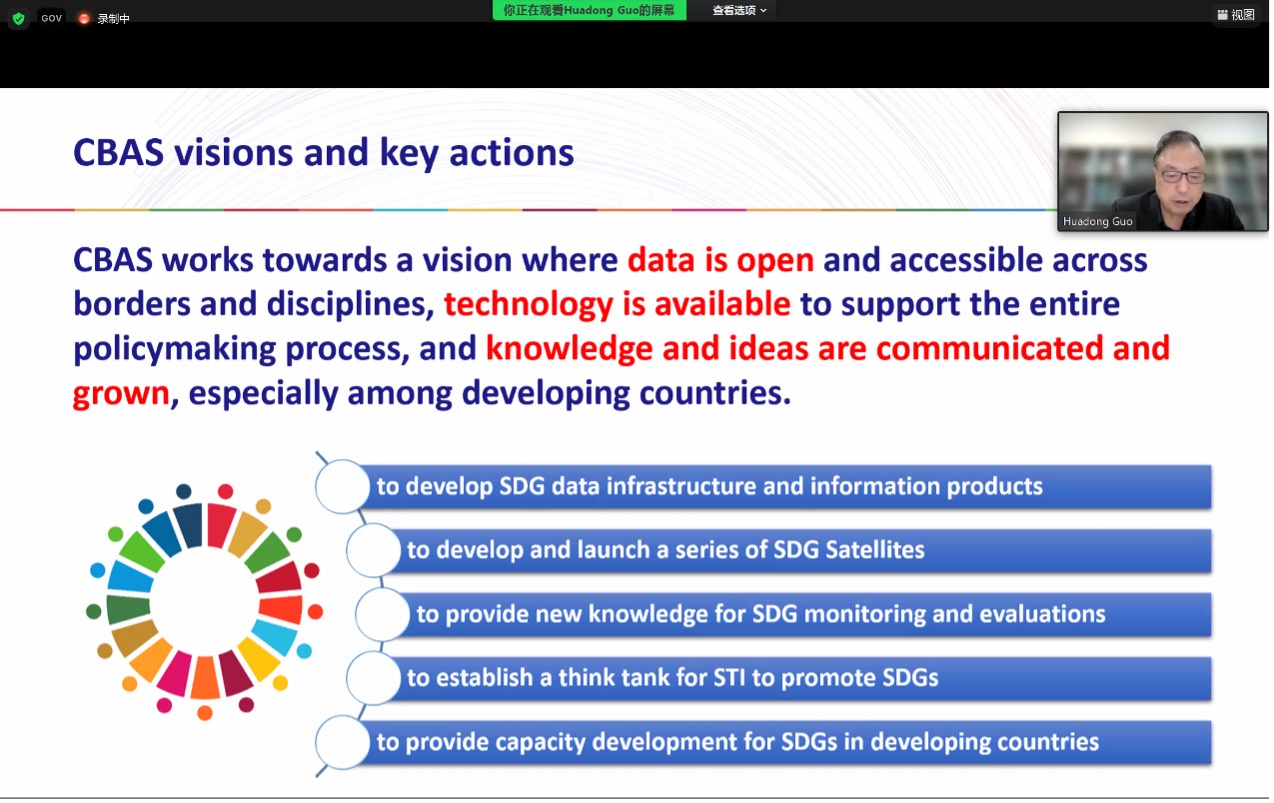Data-Informed Societies Achieving Sustainability: Tasks for the Global Scientific,Engineering, and Medical Communities
The National Academies of Sciences, Engineering, and Medicine convened a virtual public workshop, "Data-Informed Societies Achieving Sustainability: Tasks for the Global Scientific, Engineering, and Medical Communities", on September 9 and 10.
The workshop explored how the global scientific, engineering, and medical communities can use data to advance the Sustainable Development Goals (SDGs). The workshop also discussed crosscutting issues, such as engaging the scientific, engineering, and medical communities in the post-2030 agenda on data-related issues, addressing disparities in the ability of societies to utilize data, and highlighting insights from the global experience with the COVID-19 pandemic.
The workshop comprised four panels: "COVID-19, Big Data, and Digitalization: Lessons Learned and Ways Forward", "Big Data and Digitalization for promoting Equity and Equality in Sustainability Efforts", "Digitalization, Science, Technology, and Innovation (STI), and the SDGs: What should be measured and how?", and "Role of Big Data in Our Digital Future". Prof. Guo Huadong, Director General of CBAS, was invited as a panelist on the latter, addressing the role of big data in digital transformation and the future of collective intelligence for sustainable development, including open data, human settlements, education, and enhancing human capacities. The panel covered data sharing in Africa, China, and the United States through public-private partnerships, data collaboratives, data trusts, and other opportunities. The session also explored crosscutting issues, such as strengthening the engagement of scientific, engineering, and medical communities in efforts to shape the post-2030 agenda on data-related issues.
Prof. Guo said that big data is one of the core elements of science, technology and innovation, and is bringing new methodologies and paradigms to scientific research to change human life and give a deep understanding of the world. As an important part of big data, Big Earth Data has the capability of macroscopic, dynamic, multi-scale monitoring, which provides an important means for the evaluation of SDG indicators and the realization of SDGs. It can support decision-making with rich information. He introduced the progress made in the monitoring and evaluation of SDG indicators in the Big Earth Data Science Engineering Program (CASEarth), as well as the development concept and key missions of CBAS. He pointed out that sustainable development has become an international consensus, but it still faces the challenges of lack of data and technical obstacles. The scientific, engineering, and medical communities should work together to improve data service capabilities, strengthen international cooperation, and contribute to the sustainable development of humankind.
For more details visit the events website.

Guo Huadong gives presentation.



News & Events